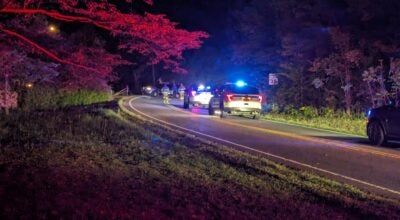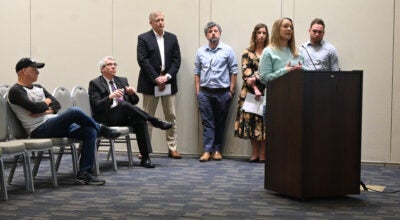RSS getting an electric bus, clean diesel bus in pilot program
Published 12:00 am Wednesday, May 19, 2021
SALISBURY — Rowan-Salisbury Schools is slated to become a pilot district for electric busing thanks to a grant from the state.
The grant will award the district an electric, battery-powered bus and a clean diesel bus to add to its regular fleet with funding from the federal settlement with $14.7 billion settlement with Volkswagen Group in the wake of the company’s “Dieselgate” scandal.
A number of districts will receive clean diesel buses, but RSS is one of five that will be awarded an electric vehicle. Both buses look like any other yellow school bus. The difference with the diesel bus is it has greatly reduced emissions compared to a traditional diesel vehicle.
RSS Assistant Transportation Director Brian Moeller said the electric bus has a range of about 150 miles and the district plans to install a charging station that can get the batteries to a full charge in about four hours. The plan now is to charge the bus after its morning route so it can be fully charged for the afternoon.
The bus body will be a Freightliner, with the electronics built by South Carolina company Proterra.
Transportation Director Tim Beck said a typical school bus costs about $100,000 and estimated the electric model would cost about $500,000. Beck said as these vehicles become the norm, he expects the cost to decrease.
An electric bus had a brief visit in Rowan County so the district’s mechanics could put it on a lift and familiarize themselves with it. Beck said the bus is strangely quiet compared to the diesel exhaust roar of its fossil fuel counterparts, with little noise other than the tires rolling on pavement.
The batteries have an estimated 10-year lifespan and a warranty for the same duration.
RSS applied to be part of the pilot program. Beck said his staff has to incorporate the bus into routes that would accommodate its range and end back at the charging station.
“I think the future of buses will eventually become electric,” Beck said. “I don’t see it going anywhere, so I don’t mind being on the forefront of helping do our part for the environment.”
Beck said the state is looking for feedback on the vehicle from pilot districts, including real-world range performance, examining if the charge time is sufficient, the amount of maintenance needed, battery performance over time and how it operates in different temperatures.
Beck said the department will try to pair the bus with drivers interested in providing feedback on the vehicle. Both the electric bus and the clean diesel vehicle are expected to be delivered for the 2022-2023 school year.






